Zhang Ke is a multitalented artist from Beijing, China, who creates both original stories and fan works. She has been selling printed comics in both Chinese and English for years, but unless you frequent Chinese comic conventions, it has been hard to get your hands on her work. That’s all changed now that she’s digitally released her first full-length graphic novel in English through Comixology. The Hoodie Trilogy, an introspective comic following three women in various stages of break-up, sinks us deep into isolation through the muted water-color art, the refined character interactions, and the abundance of small details that place you undeniably in a modern Chinese city. Wanting to know more about The Hoodie Trilogy, I contacted Zhang Ke, who agreed to answer some of my questions.
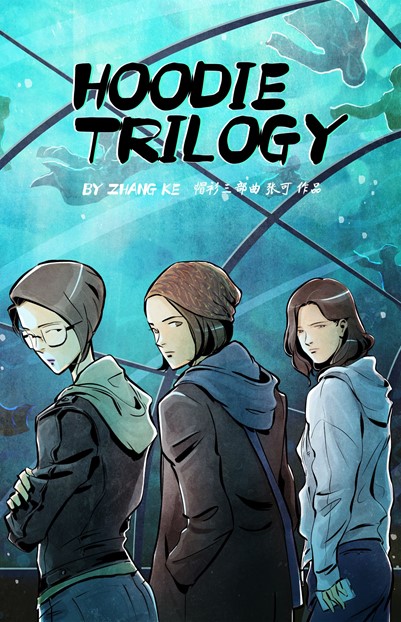
Kristina: First, can say a little bit about where you’re from since I know your hometown isn’t Beijing?
ZK: I’ve lived in Beijing for 20 years now, after having left my hometown Huhhot(Huhehaote) in 2001 for college. My home town is the capital city of the Inner Mongolia Autonomous Region, meaning there is a higher ratio of ethnic minorities there, especially Mongolian. In Mongolian, “Huhhot” means “Black City,” and though we use a character that means “blue” in modern Hanzi, it actually means “black” in ancient Chinese. It got its name from the big black/blue mountain nearby, very rocky, which always looks blueish.
Kristina: Tell us about your experience as a freelance artist. It’s one of those professions that’s really different for everyone.
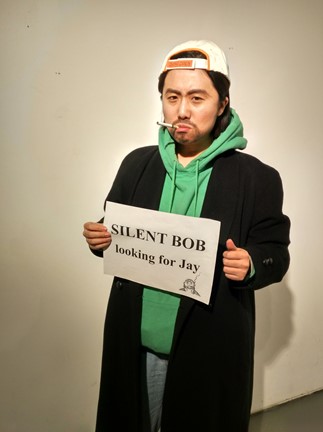
ZK: I draw, translate, and also do a little writing for magazines, but mainly I do storyboarding for advertising. I guess you can say my career is about art, though the creative part is not very important in storyboarding. As a freelancer, I need to adapt almost any kind of style and always finish my work on time, and learn how to communicate with clients to avoid trouble. I learned a lot by dealing with different projects, for example, if I didn’t take the city animal calendar drawing job, I’m sure I wouldn’t have drawn those insects, birds and cockroaches in my whole life. I tried retro comic art style in 2020 for a French restaurant in Shanghai, and studied some interior decoration stuff, too. I registered my own studio in 2018, to make my freelance somehow financially formal. I’m hoping this one-woman company will survive.
I translated Black Hammer volume one, from Dark Horse. It’s already published!
Kristina: Whoa, I didn’t know that!
ZK: Haven’t got paid yet.
Kristina: Does that happen often, not getting paid on time?
ZK: That’s quite normal if you translate for publishers. They usually pay after the books are on the shelves. So many things can happen before any books finally gets to the store. For example, with Covid 19, my editor lost his job so he didn’t get paid to finish his part either, meaning he worked for free for almost a year for that book, editing, then sending the book to the printing factory. But even without the pandemic, the translation fee is always delayed, unless you’re very famous and you can ask for prepayment or negotiate deals. People like me, we’re just humble servants of cultural exchange. My highest payment for translation is from a magazine, 150rmb [about $23.25 USD] per thousand Chinese Hanzi, normally it’s between 60-80 RMB for translating books for publishers. And you still have to pay tax, 20% if your payment is over 800RMB, then you will get a tax return for 14% in the next year.
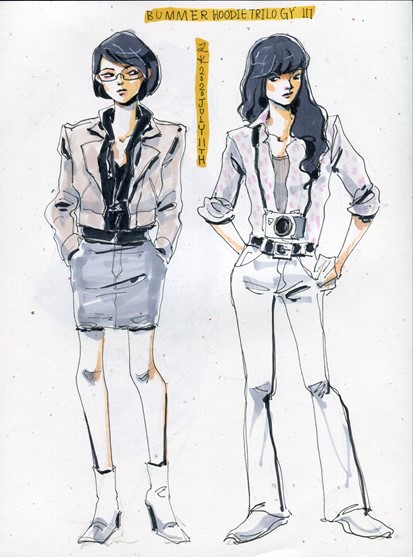
Kristina: And somehow, in between all that, you managed to draw this graphic novel. How many years have you worked on it, all together?
ZK: Well, it was not my intention to make it a trilogy at first. Da Zoo was a little story that I wrote to let go of my anger at my ex, which was in 2015 or earlier. Must be earlier because the breakup was in 2012. Anyway, I decided to draw it for Shanghai Comic Con in 2017, after a friend who is a rather famous comic artist encouraged me to do so.
Then after another break up, I wrote another story, Bummer, and the same friend said that he liked my stories and that it should be a series. So, Hoodie Trilogy it was named then, without the third story for a long time.
Kristina: So leaving a blank space where the middle would be.
ZK: I rewrote the other two stories for quite a while, until last year I started to finish them.
Kristina: They work together perfectly as a whole.The theme and the details fit together so tightly.
ZK: So it took six years 😀
Kristina: That’s comics, haha.
ZK: Because they’re all my stories, somehow. And making these stories is self-therapy sessions, needs work and rework repeatedly. Also, my cat is sleeping on my typing hands…
Kristina: I wanted to talk to you about the main themes: isolation and self-sufficiency. Why do women, inside or outside of China, feel isolated?
ZK: I think this isn’t the situation of every woman in China, though many of my friends do have trouble to fully embrace the outside world and social rules. Actually, this might not very particular in China. The stories are very personal, and come from my own experience and observations. The intimate relationship is a continuously failing quest, yet it is always there. I think my stories are about these failures and frustrations, and, of course, standing up from the lowest points, on your/my own.
I think “women and isolation” is more of a modern city thing.Kristina: I have to agree with that.
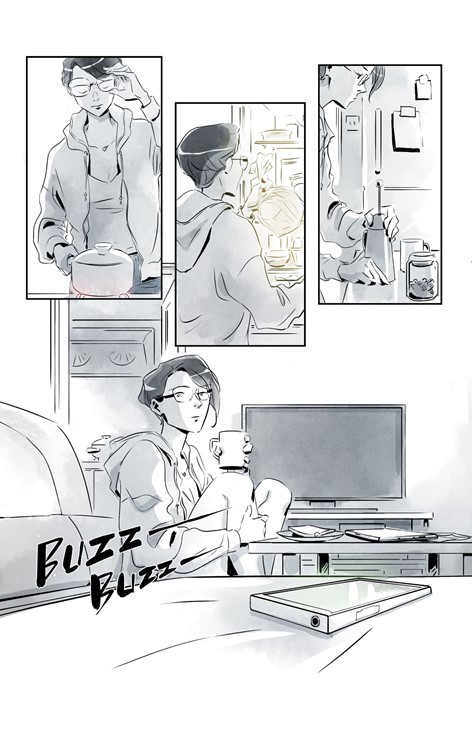
ZK: It’s more difficult in China, though, than in Western society. But much easier than many other, less developed, places. One thing is for sure: women’s rights in China is stepping back, which makes my stories very irrelevant to the moment.
Kristina: Yeah, I’ve been following that for the past few years and it’s scary. The ”cooldown period” before a divorce is granted is especially bad.
ZK: On the other hand, as much as I care about politics, I would make my stories less political, not for censorship bullshit, but because I would like to tell stories that are universal. In reality, situations are worse every day, and the feeling of hopelessness is overwhelming. Some work will come out of it, but not now.
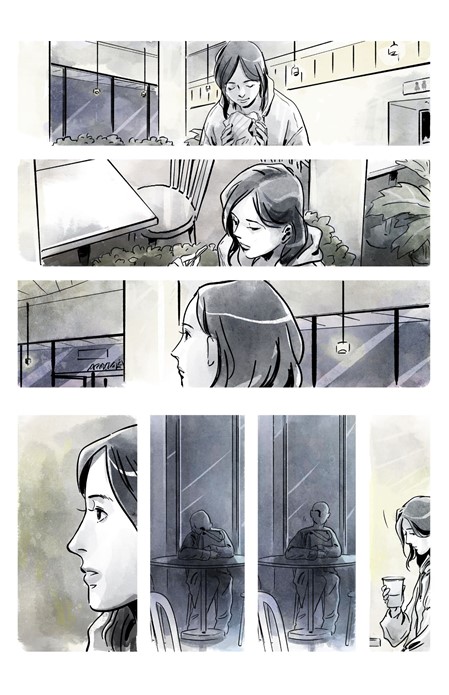
Kristina: On the topic of feeling hopeless, the three women deal with it in different ways. The first and third are able to find some strength inside themselves, but the woman in Spend the Night remains stuck. What do you think is the difference between them that allows some people to find that internal strength and some not to?
ZK: I think she’s just getting to the point that she would finally realize, “No more.” She breaks the silence to reach to the person [on the receiving end of a text message] out of fear, fear of being alone like the homeless woman she met in the cafeteria. And another thing is, readers don’t always have to see the character getting out of trouble. I would like to present the state that in many unbalanced relationships, this is how we spend the night, how we fear to lose the one we care about, and how fragile we allow ourselves to become, and then, maybe, the reader will see things from another angle and decide if this is worth it or not. Some people even enjoy the feeling of being hopeless.
Kristina: So it could be the lowest point before a change?
ZK: Maybe, or she might just get a reply that says, “My cellphone was dead last night and I fell asleep.”
Kristina: In that case, she might not need to change.
ZK: It’s more of a self-torturing thing.
Kristina: Continuing to hope that the failing relationship will work, even though the signs all say it won’t?
ZK: Yup, typical things I would do back then, because I looked around and thought, “This is the best torture I can get.”
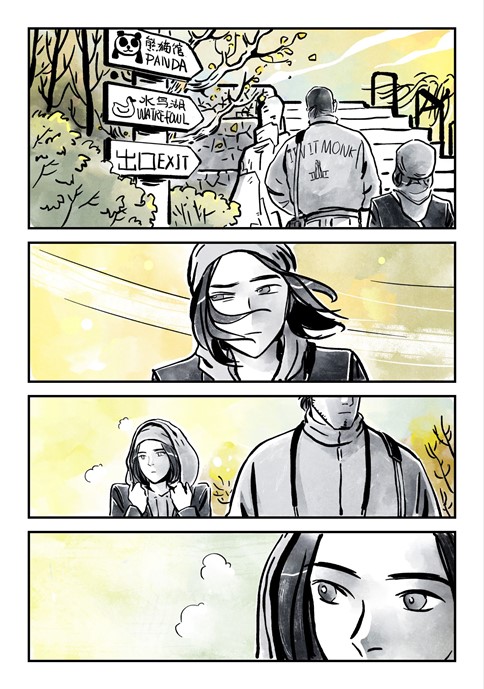
Kristina: In that case, where do you think the strength of the first woman (in Da Zoo) comes from? It takes a lot of courage to decide she’s tired of it.
ZK: The accumulation of disappointment and hurt would eventually do it. When my ex asked me, “Do you like yourself now?” that was the turning point for me. I compressed myself for many things and for a very long time to get along with him. Then he asked me that question, which denied my effort. I don’t have another word when I remember that relationship, other than suffering. Everyone has his or her own capacity for the other one’s bullshit. Mine used to be the Pacific, but now it is more like the Atlantic Ocean.
Kristina: In the text on the back cover, you talk about the hoodie protecting women. Can you talk a bit about that? I thought it was especially interesting that most of the time, they don’t wear the hoodie up, so it’s almost no different from a normal shirt. Yet still, the feeling is different.
ZK: Thing is, I was very impressed with a meme around the time I named the trilogy. It says, “Be very careful of your daily outfit because you might die today, and that outfit will be the one you’re wearing to die!” Seeing that, I thought, “I have a high chance to die in a hoodie, then.” So I made a joke with my friend and he mentioned a series, since the stories are all out of my life. And when the Lord of the Rings trilogy returned to the big screen in China recently, I realized my hoodie “fetish” originated from those movies, not from a superheroes’s lay-low outfit.
But I did give a thought about hoodies before I wrote down the words on the back cover, because I do believe there is a link between hoodies and me, other than my favorite outfit. And I do like the feeling that I’m carrying a little cave that I can hide in, it’s more symbolic than an actual feature. It could be an introvert thing.
Kristina: I think so, because I’m wearing a hoodie right now.
One thing I really loved in your book were those silent details when the women pass by happy families. I think everyone knows that feeling, when you‘re alone and watching that others have that “normal” life. Do you think there is an internal conflict, on the one hand, to find a way to compress yourself, and, on the other hand, to decide to remain isolated because you can’t stand to be in a cage?
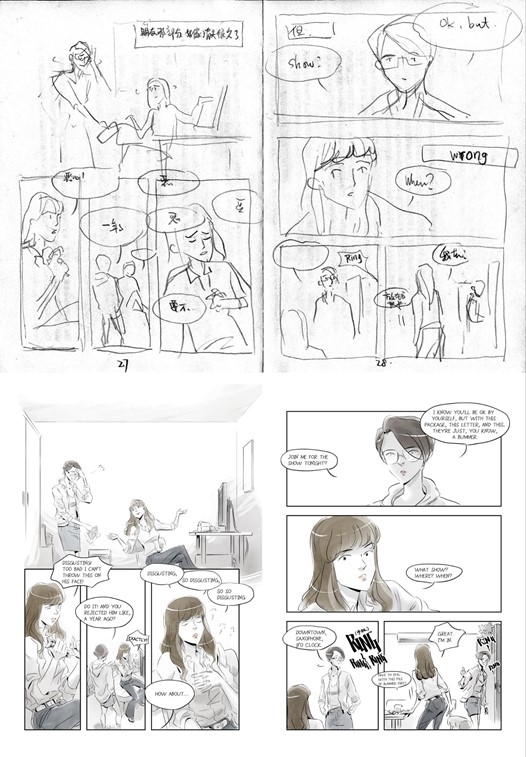
ZK: I don’t have that struggle if facing the choice of a commitment like marriage. First, I don’t think I will have that chance, and second, I have low expectations of marriage, even monogamy… But to the stories, my intentions of the settings are more than making the girls look lonely.
In Da Zoo, the families with kids are having fun getting to know animals. That is just the woman’s childhood memory, but the kids in the zoo are real, they’re as happy as her back in her childhood. The reappearance of her happy memories is meant to make a contrast with the situation now, that he wouldn’t care to try to understand her. It’s isolating, but there’s no happy family intentions in her mind or mine.
In the Bummer, the family is used to suggest that the woman was involved with a married man, to see a family like that only reminds her of bad things, more urgent than feeling isolated, she might only want to avoid them or escape, to be left alone, somehow.
Kristina: In Da Zoo, she mentions that the zoo is a flawed way of connecting with nature. Do you think that growing up outside of Beijing allowed you to appreciate nature more than you otherwise would have?
ZK: Beijing is not that bad!
Kristina: Beijing has almost no nature whatsoever! You should see the city where I live now, there are forests everywhere. I love Beijing, but nature is not its strong point.
ZK: Well, the city is designed basically after ancient plans. Nature only exists in Royal or Noble’s garden. I think it’s a city planning problem, but the suburban area are just fine, normal northern wildness.
And as long as I love animals and nature, I don’t feel troubled living without many of them, oddly.
Kristina:
What’s next for you? Do you have more original comics currently planned?
ZK:I do, and I already finished writing the story. It’s much more dramatic and much more fictional than my old ones. I described it to a friend that my new work is feminism erotic cthulhu style story, don’t know if it works or not to combine these elements together but I will have fun doing it for sure.
SOLRAD is made possible by the generous donations of readers like you. Support our Patreon campaign, or make a tax-deductible donation to our publisher, Fieldmouse Press, today.
SOLRAD is made possible by the generous donations of readers like you. Support our Patreon campaign, or make a tax-deductible donation to our publisher, Fieldmouse Press, today.

Leave a Reply